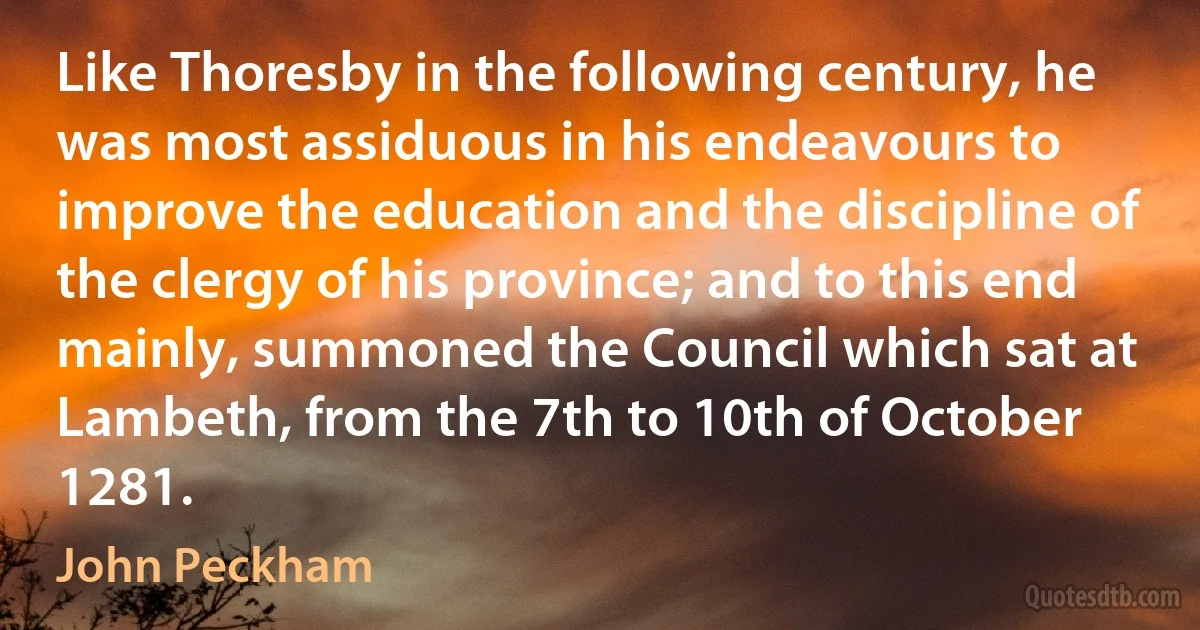Following Quotes - page 49
... it is extremely likely that Aryabhata knew the sign for zero and the numerals of the place value system. This supposition is based on the following two facts: first, the invention of his alphabetical counting system would have been impossible without zero or the place-value system; secondly, he carries out calculations on square and cubic roots which are impossible if the numbers in question are not written according to the place-value system and zero.

Aryabhata
Is a Sufi a follower of Islam? The word Islam means 'peace'; this is the Arabic word. The Hebrew word is Salem (Jeru-salem). Peace and its attainment in all directions is the goal of the world.
But if the following of Islam is understood to mean the obligatory adherence to a certain rite; if being a Muslim means conforming to certain restrictions, how can the Sufi be placed in that category, seeing that the Sufi is beyond all limitations of this kind? So, far from not accepting the Quran, the Sufi recognizes scriptures which others disregard. But the Sufi does not follow any special book. The shining ones, such as 'Attar, Shams-i Tabriz, Rumi, Sadi, and Hafiz, have expressed their free thought with a complete liberty of language. To a Sufi, revelation is the inherent property of every soul. There is an unceasing flow of the divine stream, which has neither beginning nor end.

Inayat Khan
Whether religion is a divisive or reconciling force depends on our certainty or our humility as we practice our faith in our politics. If we believe that we know God's truth and that we can embody that truth in a political agenda, we divide the realm of politics into those who are on God's side, which is our side, and those with whom we disagree, who oppose the side of God. This is neither good religion nor good politics. It is not consistent with following a Lord who reached out to a variety of people - prostitutes, tax collectors, lepers. If politics is the art of compromise, certainty is not really politics, for how can one compromise with God's own truth? Reconciliation depends on acknowledging that God's truth is greater than our own, that we cannot reduce it to any political platform we create, no matter how committed we are to that platform, and that God's truth is large enough to accommodate the opinions of all kinds of people, even those with whom we strongly disagree.

John Danforth
None of it was my application. I didn't pay for any of it. It was...the FBI, bless their pressed white shirts. They picked up on something they thought was really important, and they were following it through. They were fucking serious, mate. What are you supposed to do? You get this late-night call from the FBI when you arrive in Los Angeles, and they're like absolutely full-on, "We've got to talk to you now, before you do anything. We have to have a discussion with you, Mr. Crowe."

Russell Crowe
In a way, the worst sin of the conservatives was that of hypocrisy. They proclaimed growth as their objective, offered it as the answer to all problems, all while following policies that actually inhibited that growth at least a bit. At the end of the day, however, the most striking fact is how little happened to U.S. long-term growth, good or bad, on their watch.

Paul Krugman
Four days after this was given to the world he took to his bed, and he remained there for nine weeks. Such a blow following hard on the heels of such a triumph aroused the liveliest sympathy. The doors of the Royal Institution were beset by anxious inquirers, and written reports of his condition at various periods of the day had to be posted in the hall.

Humphry Davy
During the following decade [of the 1950s] modern economic history took a dramatic swing away from the liberal-left consensus established by the Hammonds, Tawney and the Webbs. The seminal text for this change of direction was the 1954 collection of essays compiled by F. A. Hayek, "Capitalism and the Historians".

Friedrich Hayek
My main problem with cops is that they do what they're told. They say 'Sorry mate, I'm just doing my job' all the fucking time. And every time someone says 'if it was down to me it would be ok, but I'm following orders' a little bit inside of you dies. If you say it as often as cops do, then there isn't much left.

Banksy
In this respect, Ted Kennedy was more like Lyndon Johnson than like his brothers. He was laying down his marker on the Senate as Johnson had. He was demonstrating that he could make the institution work. It was as if he was seeking to escape the politics of charisma that his brothers had personified and that had, arguably, cost them their lives; as if he was seeking reposition himself as a pol, not a messiah, burying himself in Senate drudgery, retreating into the institution, following Johnson's lead and Humphrey's, both of whom had been whips, protecting himself physically but also spiritually. It was totally uncharacteristic for a Kennedy to do so. No Kennedy had ever been an institutionalist, much less an errand boy.

Ted Kennedy
This was not a blurted, off-the-cuff comment - Kennedy was reading from a prepared text. It was not a shocked first reaction to the abuses at Abu Ghraib - the story had broken more than a week earlier. Incredibly, the senior senator from Massachusetts really was equating the disgraceful mistreatment of a few Iraqi prisoners by a few American troops with the unspeakable sadism, rape, and mass murder that had been routine under Saddam Hussein. Kennedy's vile calumny should have triggered outrage. Here was the most prominent liberal politician in America accusing his own government of the very savagery it said it had gone to war to uproot. It was the worst kind of anti-American poison, and it was coming not from a crackpot with no following but from one of the most powerful Democrats in Congress. It should have unleashed an uproar. It unleashed nothing.

Ted Kennedy
Following the receipt of the gladsome news great joy and enthusiasm seemed to fill every heart; and during the night following, the occasion was celebrated by immense processions of men and boys marching through the principal streets to the music of many brass bands, the firing of cannon, and the discharge of anvils. It is needless to say all of us New Mexicans heartily joined in to swell the throng, which continued its hilarity throughout the night. No thought then entered my mind that in the short space of three years I would be a delegate in Congress, thereby admitted to the presence of the greatest statesman in consultation about affairs in the Territory of New Mexico.

Francisco Perea
The actual participants in industry under individualism are prompted to action by the following combination of incentives: desire for an income, desire for a higher income, desire for security, satisfaction received from shouldering responsibility or from wielding power, the joy of participation in creative activity, and the desire for applause and prestige. ...And all these motivations may be conserved and strengthened under socialism.

Kirby Page
From November of 1892 I passed through astonishing and crucial experiences, following which, in the spring of 1893, there occurred the most extraordinary event of my life. I had crossed 14th Street at 4th Avenue, in New York City. Cars and people were hurrying by. While stepping up to the northeast corner curbstone, Light, greater than that of myriads of suns opened in the center of my head. In that instant or point, eternities were apprehended. There was no time. Distance and dimensions were not in evidence.

Harold W. Percival
Having thought it right to leave behind me some account of my friends and benefactors, it is in a manner necessary that I also give some account of myself; and as the like has been done by many persons, and for reasons which posterity has approved, I make no further apology for following their example. If my writings in general have been useful to my contemporaries, I hope that this account of myself will not be without its use to those who may come after me, and especially in promoting virtue and piety, which, I hope I may say, it has been my care to practise myself, as it has been my business to inculcate them upon others.

Joseph Priestley
There was no instalment of Free Trade, which need be taken into our account, before 1842. ... I therefore take 1843 as the first operative year of the first instalment of Liberal legislation under what was called the new Tariff. The second instalment was the new Tariff of 1845. The third instalment was the repeal of the Corn Laws at the opening of 1849, together with the repeal of the Navigation Laws during the Parliamentary Session of that year. The fourth was the new Tariff of 1853, accompanied with the repeal of the Soap Duties and other changes. The fifth and last great instalment was granted by the Customs Act of 1860, which at length gave nearly universal effect to the following principles:
1. That neither on raw produce, nor on food, nor on manufactured goods, should any duty of a protective character be charged.
2. That the sums necessary to be levied for the purposes of revenue in the shape of Customs duty should be raised upon the smallest possible number of articles.

William Ewart Gladstone
I have come to discover through earnest personal experience and dedicated learning that ultimately the greatest help is self-help; that there is no other help but self-help- doing one's best, dedicating one's self wholeheartedly to a given task, which happens to have no end but is an ongoing process. I have done a lot during these years of my process. A swell in my process, I have changed from self-image actualization to self-actualization, from blindly following propaganda, organized truths, etc. to searching internally for the cause of my ignorance.

Bruce Lee
By an observation of an eclipse of one of Jupiter's satellites, on the night of the 25th of March, in latitude 350° 51' 30", I found that we were very near the 100th degree of longitude west from Greenwich. On the following day, therefore, we celebrated our entrance into the United States territory. Those who have never been beyond the purlieus of the land of their nativity, can form but a poor conception of the joy which the wanderer in distant climes experiences on treading once more upon his own native soil! Although we were yet far from the abodes of civilization, and further still from home, nevertheless the heart within us thrilled with exhilarating sensations; for we were again in our own territory, breathed our own free atmosphere, and were fairly out of reach of the arbitrary power which we had left behind us.

Josiah Gregg
It will hardly be expected from a work making so little pretension as this to scientific accuracy and completeness, that the remarks which my plan necessarily leads me to make, concerning the aborigines of western America, should be either critical or comprehensive. ...I propose, in the few following pages, to record such facts as shall seem to be most novel, and to corroborate, in my humble measure, occasional others which have before been related.

Josiah Gregg



